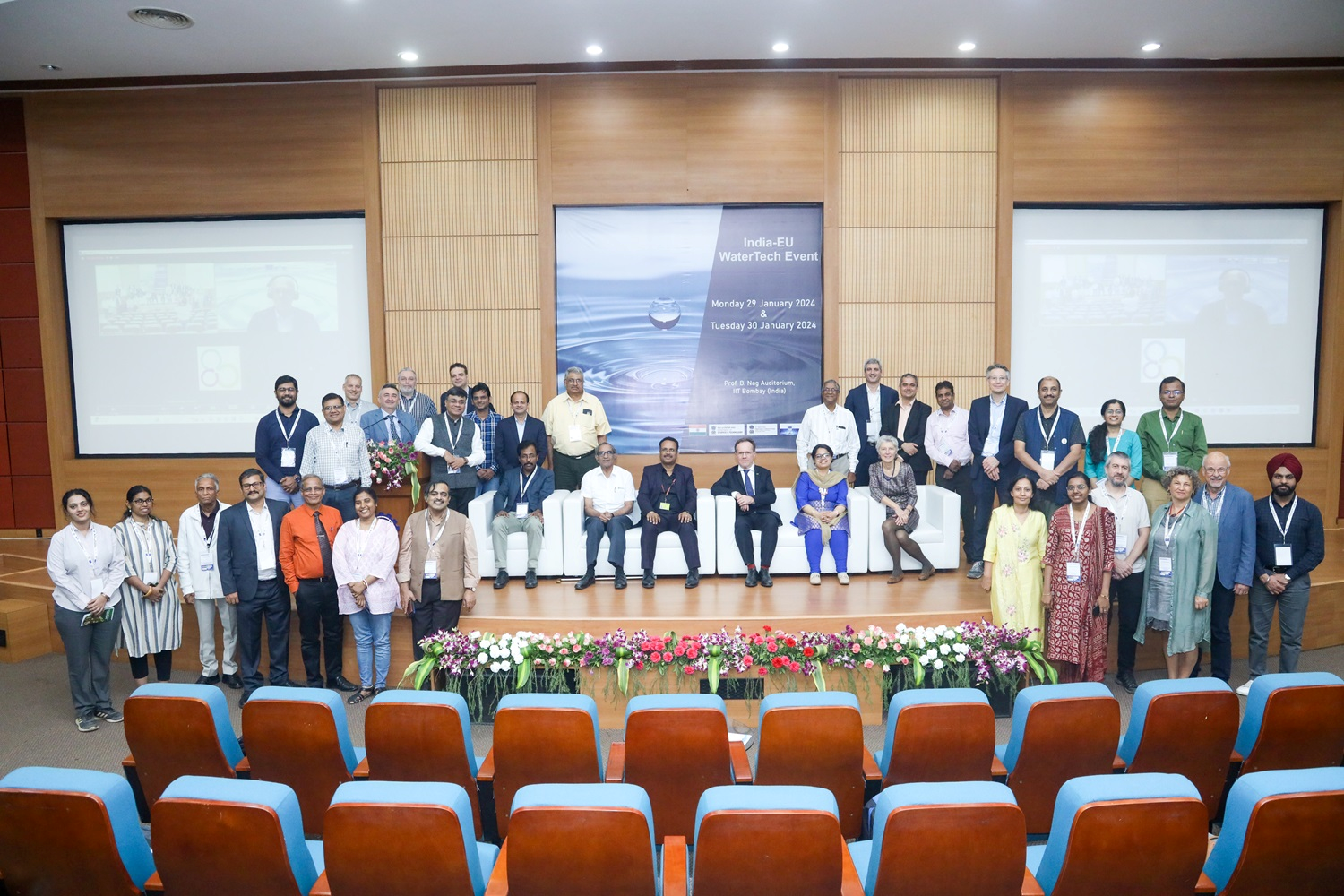Key new innovative technologies resulting from joint research projects launched in 2018, that could tackle the urgent water challenges in India, were presented at the European Union-India WaterTech event organised at Mumbai on January 30, 2024.
The technologies developed in a collaborative manner by researchers of India and countries from European Union for improving the quality of drinking water, wastewater management, rainwater harvesting and real-time monitoring systems, are now set for further deployment and market uptake.
Globally, 2.1 billion people lack access to safe water, a crisis amplified by 160 million people relying on surface water laden with pollutants. India, home to 18% of the world's population has only 4% of its water resources.
Through Horizon 2020, the EU Research and innovation programme and India’s Department of Science and Technology and Department of Biotechnology, a total of up to € 40 million (Rs 367 crore) was invested in seven projects, selected from the 2018 EU-India Joint Call on research and innovation for Water.
In total, 130 entities from across the EU and India, including leading research institutes and organisations, small and medium enterprises and startups, were part of the seven projects.
The challenge was to come up with new technologies and business models for improving the quality of drinking water, wastewater management, rainwater harvesting and real-time monitoring systems. The seven projects have collectively established more than 60 technologies, of which at least 15 are ready for market uptake and another 15 for deployment.
The event hosted at the prestigious Indian Institute of Technology Bombay was attended by almost 300 stakeholders on water management, both form Europe and India, including researchers, innovators, businesses, entrepreneurs, investors, experts, and governmental representatives.
Seven Projects and New Technologies
- The INDIA-H2O project has achieved breakthrough in water technology by designing low-cost, high-recovery solution for extracting potable water from saline groundwater, the project’s nature-inspired water treatment solution powered by renewable energy.
- LOTUS has developed an innovative carbon nanotube technology to offer real-time monitoring of water supplies, helping to prevent deadly outbreaks of waterborne disease.
- PANI WATER has developed and deployed a range of new technologies capable of making wastewater safe for use in agriculture.
- PAVITR has successfully developed and deployed cost-effective and sustainable solutions to ensure the provision of safe water across India, such as an automated electro-chlorination unit.
- PAVITRA GANGA has several technologies in the pipeline, notably the low energy technologies treating wastewater under very challenging conditions and provides effluents suitable for unrestricted irrigation, after disinfection or a technology treating organics from sewage using the IPC filtration, which are combined with other organic solid waste streams in a digestor to produce biogas (green energy). Together with industrial partners these technologies will be developed to full-scale installations.
- SARASWATI2.0 has established ten pilot sites across India, focusing on decentralized wastewater treatment, resource/energy recovery, and real-time monitoring in rural and urban areas.
- SPRING has developed a cost-effective wastewater treatment technology to remove pollution from stagnant and flowing water sources in India.
These projects collectively represent impactful advancements in water technology, addressing critical challenges, and providing innovative solutions with broad applications across India. While some of these innovations are already in pilot stage and/or deployed, several of them require further efforts for market deployment. Both EU and India are committed to support the market uptake phase of such technologies in line with the recently launched EU-India Trade and Technology Council.
Details on the seven co-funded projects: https://op.europa.eu/en/publication-detail/-/publication/ea1c6618-bc02-11ee-b164-01aa75ed71a1/language-en/format-PDF/source-303293754































